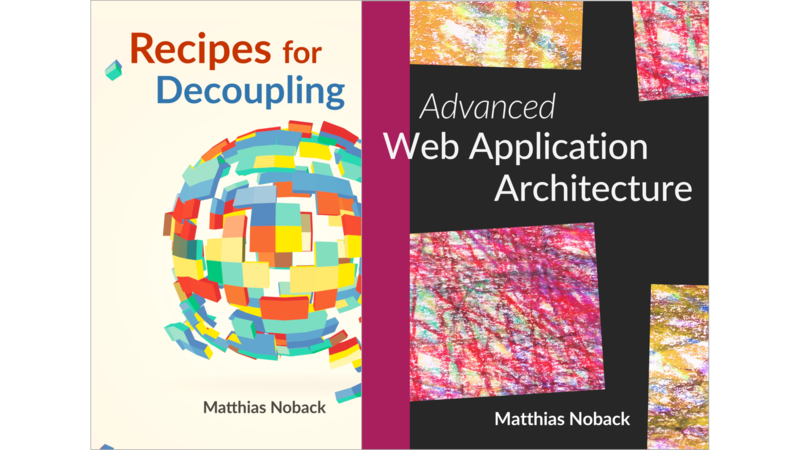Looking for a print edition? It's available on Lulu.
"Future me will appreciate it if I apply even just half of the recipes in this fantastic book. I learnt something new from every chapter and I can't wait to share some of these methods with my teams." Andrew Barlow
"Another excellent book from Matthias Noback! I learned a lot about techniques how to decouple your application from frameworks, test suites and other libraries. And the best part: it showed me how to unleash the power of PHPStan with custom rules to make sure you stay decoupled." Stefan Blanke
Software is never done. The world around your program changes faster than you want it to. Frameworks and libraries are abandoned and replaced with something better (or just something new), so you need to migrate. You can postpone this work for a bit, but eventually you'll have to catch up, or your project may end up hopelessly outdated. I'm sure you know one or two of those projects!
How can you make all of this easier for yourself and the future maintainers of the project? The keyword is "decoupling". You can change the design of your code to defend it against changes in any dependency your project relies on. Decoupling your code is a way to make it future-proof (without doing too much work that "you ain't gonna need").
About 10 years ago I started looking for ways to decouple my code, but at first I struggled to do it effectively. My code was decoupled in the wrong places, or in the wrong way. I got a better view on this topic after several intense experiences with some legacy projects, a big framework migration, and a complete project rewrite (that I'm sure could have been prevented). I've collected many recipes for decoupling along the way. This book gives you a practical overview of common situations that suffer from an often unintended high level of coupling in web applications. Of course, it also gives you step-by-step recipes to improve these situations. The examples in this book show you how to decouple from your web framework, templating engine, test framework, ORM, and so on.
Decoupling is one thing, but staying decoupled is something else entirely. That's why in this book we focus on how to solidify the decoupling rules with PHPStan, the automated static analysis tool for PHP. That way we don't have to rely on discipline and code reviews, but can let a tool point out possible coupling mistakes.
"Have you ever wondered how to efficiently decouple from your PHP framework? And how to enforce it through tooling? I did! And Recipes For Decoupling delivered me very well thought out explanations, examples and snippets for decoupling. It even explains step by step how to enforce these decoupling rules through PHPStan rules. The book contains examples from a variety of popular PHP frameworks including Symfony, Laravel, Mockery and PHPUnit." - Vincent Hagen
"'Decoupling' is a delightful read that merits a slow read because you will want to stop and code after every chapter! Noback’s clarity and honesty is welcome in an era of big personalities, as is his ability to distill framework concepts to elegant code." - Matthew Gatner



